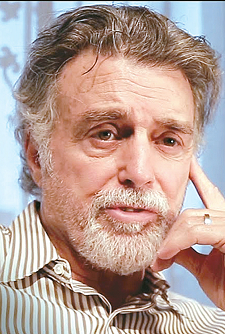
South Korea banned the dog meat industry on January 9, a first in decades. It’s been 51 years since the consumption of dog meat was regulated by law.
The news prompted Chris DeRose, President of Last Chance for Animals (LCA), to immediately book a plane ticket to South Korea. He leads the West Hollywood-based animal protection organization.
“The dog meat culture is not needed, it’s wrong, it’s disgraceful, and it’s inexcusable,” DeRose stated in an exclusive 2016 interview with the Korea Daily.
In response to the report, DeRose organized a protest against the consumption of dog meat in Korea, held in front of the Korean Consulate General in Los Angeles.
The Korea Daily spoke to DeRose by phone on January 9, after his hasty departure for South Korea. Below is an excerpt from the interview.
-The dog meat ban was finally passed.
“It’s really historic. I couldn’t resist going to Korea. I attended a press conference at the National Assembly to celebrate the passing of the ban. This is the result of efforts by Animal Liberation Wave (ALW) and other animal protection organizations, standing in solidarity with us. We are grateful to the South Korean lawmakers for their historic decision.”
-It’s been a long struggle.
“LCA has been working since the 1980s. Ending dog meat consumption requires recognizing these animals’ existence. It demands a change in social perception, a cultural shift. It’s about altering how we think about animals, and it’s not an overnight process. I knew it would be a long fight.”
-What was the most challenging part?
“There were two main challenges: altering perceptions of dog meat and addressing practical issues faced by dog farmers. It wasn’t just about saying ‘don’t eat dogs’. We spent a long time conducting research, publishing statistics, and running campaigns to convince people. Additionally, we couldn’t ignore the dog farmers’ livelihoods. We presented them with alternative businesses, like growing mushrooms and tomatoes. It was a step-by-step process.”
-How did you collaborate with organizations in Korea?
“I campaigned for public awareness and lobbied politicians, but as a former journalist, my approach included investigative efforts. For instance, with Animal Liberation Wave in 2021, I produced a video exposing the cruelty in the dog meat industry through undercover reporting. Our American-based organization collaborated effectively with Korean groups, united by our common goal to end dog consumption.”
-What is the impact of South Korea’s ban on dog meat?
“The Korean government has taken a significant step in animal protection. As a global player, South Korea’s decision will influence attitudes towards animals both domestically and internationally, sending a strong message about the importance of animal protection.”
-What are your future plans?
“This is not the end. Various organizations must continue their efforts to ensure the law’s seamless implementation. LCA will assist, and we will persist in our global fight against animal cruelty.”
☞ Legislation on Banning Dog Meat Consumption
Chris DeRose’s LCA, along with other international animal protection organizations like Humane Society International (HSI), played a key role in achieving this result. The Korea Daily has been advocating for a ban on dog meat in South Korea through feature articles. In 2022, alongside an exclusive interview with DeRose, the Korea Daily published a 10-part series in collaboration with HSI in Korean. The Korea Daily also reported on a photo exhibition of rescued dogs from South Korean dog farms at the renowned Hamilton-Selway Fine Art gallery in Hollywood. Adjacent to the gallery, a BTS pop-up store was operating at the time, presenting a diverse image of Korea.
BY YEOL JANG, JUNHAN PARK [jang.yeol@koreadaily.com]




